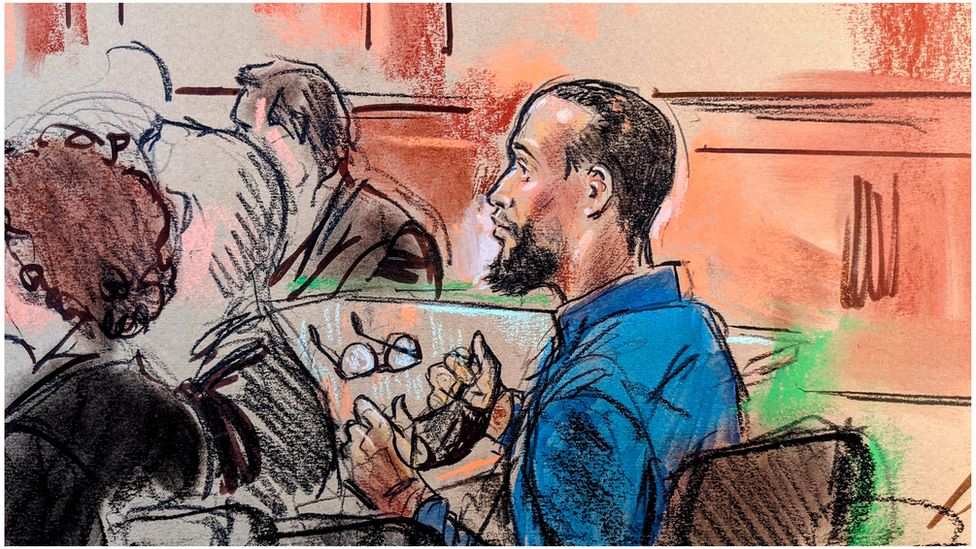An American aid worker killed by the Islamic State wrote of knowing that “his time had come” before his execution by captors, his father told a US court.
Edward Kassig held back tears as he read a letter from his son, Peter Kassig, one of four Americans killed by the terror cell known as the Beatles.
Alleged member El Shafee Elsheikh, 33, is accused of kidnapping and conspiracy.
He has denied all charges.
The elder Mr Kassig is the latest family member of victims to give evidence at the trial of Mr Elsheikh, who is the highest profile IS fighter to face justice in a US court.
Describing his son’s final letter, Mr Kassig said: “This was a young man knowing his time had come. It was his farewell.”
Then he read the letter.
“I spent a long time taking life for granted and taunting death,” his 26-year-old son wrote. “I have never wanted to live more. I don’t want you and Mum ruined over this.”
He said he “cried a lot in the first few months, but not anymore”.
Prosecutors in the case argue that Mr Elsheikh was deeply involved in ransom demands from the families of hostages, and the executions the so-called Beatles carried out.
The defence, however, have said that the Sudanese-born Londoner was not part of the group and merely “a simple Isis fighter”.
Several family members of victims have testified about email exchanges with Beatle captors as part of the prosecution’s case.
Ed Kassig recounted receiving the first in December 2013 saying: “Peter is at this moment our guest and we don’t want to harm him” and later, a message demanding 100 million euro in exchange for his release.

The Kassigs had several subsequent email exchanges with their son’s captors. In a video message to IS, they said their son “grew to love Syria” and had “embraced Islam” – a nod to his conversion while in captivity, and changing his name from Peter to Abdulrahman.
They were able to receive a letter from their son in June 2014, even as they appealed to the White House and told the IS captors they were “turning every stone” to meet the ransom demands.
However, the IS group released a video in November 2014 apparently showing Mr Kassig being executed. A FBI agent confirmed his death to the family, Mr Kassig said.
His son had been a “caring kid” and particularly “sensitive to the needs of others”, he told the court.
He had served in the US Army and did a tour in the Middle East before becoming an aid worker after going to Turkey in 2013 and taking trips over the border to Syria, his father said.
He founded the aid group Special Emergency Response and Assistance (Sera) because he “realised there was a lethal time lag between when war breaks out and aid comes in,” and it provided food and medical supplies to anyone in need.
“It didn’t matter if it was a jihadi or a refugee,” Mr Kassig said.
Mr Elsheikh – on Wednesday wearing a white shirt and black mask – sat back in his chair and listened intently to the testimony, cocking his head slightly to look at the government’s evidence, and making no eye contact with the witness.
The trial continues, with as many as 50 witnesses expected.



























